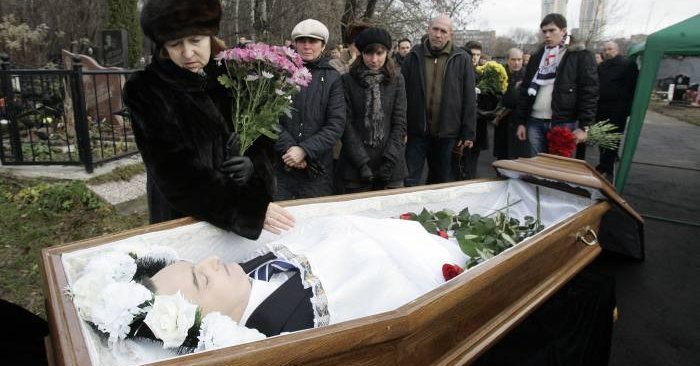Unfortunately, he was one of the countless victims of the untamed abuses of power that are protected by infrastructures that have no respect for human rights and that face no consequences for their transgressions.
Precedent
Magnitski was gone but certainly not forgotten by virtue of the lobbying of Bill Browder - an American-born businessman and friend of the late Magnitsky. The financier managed to bring the case to U.S. Senators John McCain and Benjamin Cardin, who proposed legislation sanctioning the responsible parties from overseas.
Given the whirlwind of international media coverage and outrage, it was not the most strenuous task to get people on board. Browder himself, in his book “Red Notice: A True Story of High Finance, Murder, and One Man’s Fight for Justice” said: “The number of Senate cosponsors grew quickly, with three or four new senators signing on every month. It was an easy sell. There wasn’t a pro-Russian-torture-and-murder lobby in Washington to oppose it. No senator, whether the most liberal Democrat or the most conservative Republican, would lose a single vote for banning Russian torturers and murderers from coming to America.”
It was not all smooth sailing though. The bill was met with a certain degree of pushback, notedly from Sen. John Kerry, due to the efforts in the renewal of U.S-Russia relations that the presidency was pursuing at that time, but odds were already in justice’s favor.
It all culminated in the drafting of the “Sergei Magnitsky Rule of Law Accountability Act of 2012 (H.R. 4405)” by the United States House Committee on Foreign Affairs in June 2012, which was swiftly met by bipartisan support and signed by former President Obama on December the 14th, 2012.
The intent behind this law was to sanction foreign violators of human rights, such as the responsible officials for Magnitsky’s death, from within the U.S. by freezing their assets in the States and prohibiting their entrance to the country. A noble cause indeed, that has served as a beacon of progress within the humanitarian field and as an inspiration for many other nations to follow suit with their own adapted versions (Canada, UK, etc).
The EU proposal
But why is this relevant now? Well, in the EU, although there is a precedent of restrictive measures put in place as a punitive action towards perpetrators of violations of internationally recognized human rights (such as the Myanmar/Burma sanctions) there is no unified legislation on the matter for the Union as a whole.
In September, following the resolution on the poisoning of Alexei Navalny, the European Parliament reiterated its support for the drafting of a similar bill to the American one, since this is not the first time that this idea has been discussed on the continent. The European Parliament passed a resolution in favor of a Magnitsky-type law back in March 2019. In September 2020, a draft, was reportedly leaked to EUObserver, which, unlike the original, did not regard corruption as one of its punishable offences and been cause for a fair amount of criticism.
Another aspect worth noting is that the draft called for consensus as opposed to President Von der Leyen’s qualified majority approach. This would speed up the decision-making process as she proposed this past October in her “State of the Union Address”, where she said: “This House has called many times for a European Magnitsky Act – and I can announce that we will now come forward with a proposal.”
Browder himself, along with many others, was very pleased, going as far as to tweet about his satisfaction over the bill and especially, its name .
The support for this project is only being met with reservations (as it did in 2009, in the U.S) in nations that have concerns over the impact that such a law could have on their bonds with Russia.
But nonetheless, even if this were to be delayed further, the mere fact that these conversations are being had seems to portend a major step in the right direction for the Union as a whole. A much-needed beam of sunshine after such gloomy months.
Whether it’s Magnitsky, Khashoggi or someone whose name wasn’t an international headline for months, it is Europe’s duty to condemn and sanction those who choose to mercilessly violate human rights, whoever and wherever they may be.
As President Von der Leyen stated on her message concerning this very issue and using the example of Myanmar’s removal of the generals responsible for the killing of tens of thousands of people from the Rohingya minority: “European sanctions had a clear impact. Sanctions can make a difference, as a foreign policy tool, as a deterrent but most importantly as a signal that Europe does act in the face of injustice.”


Follow the comments: |
|
